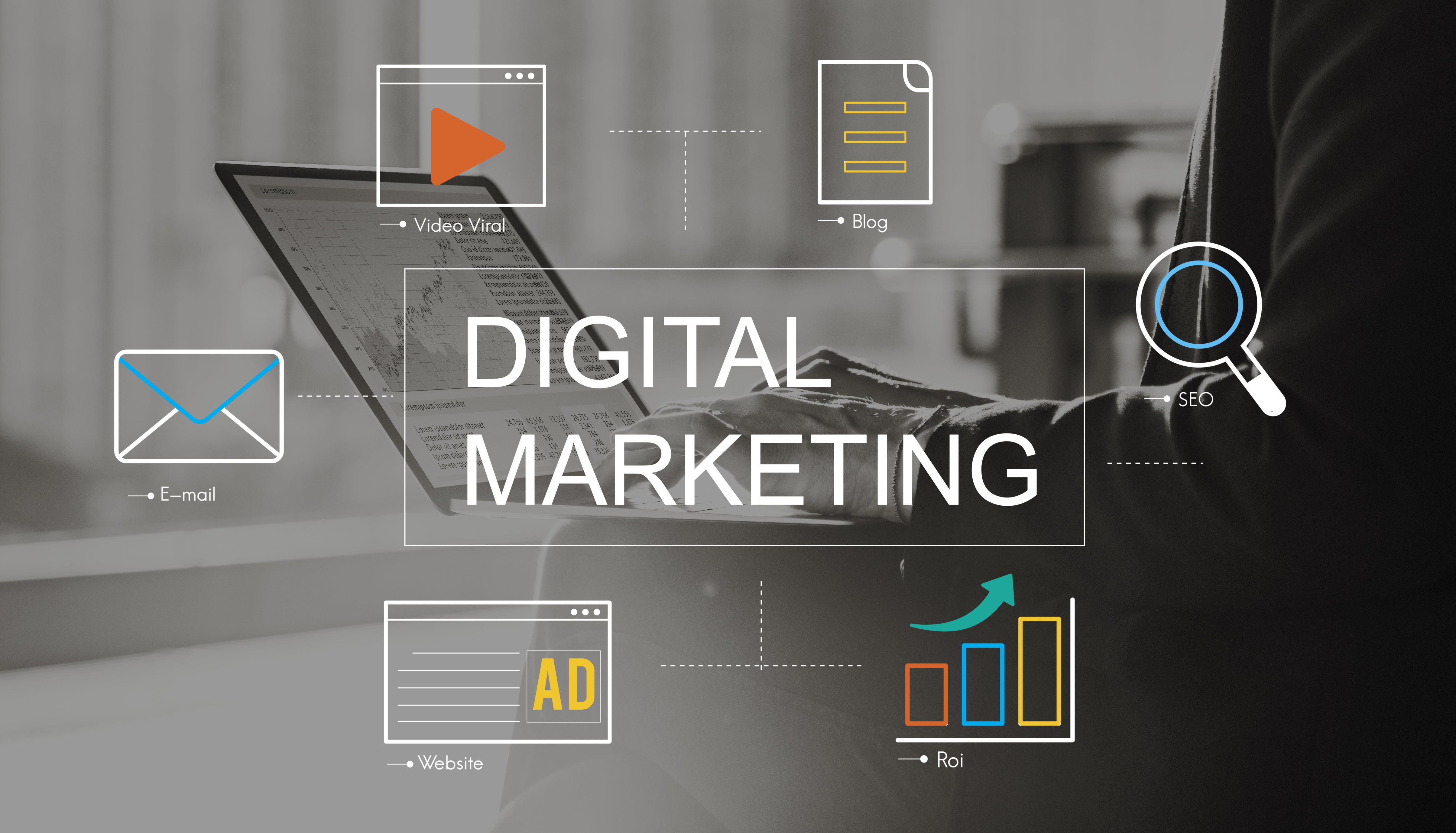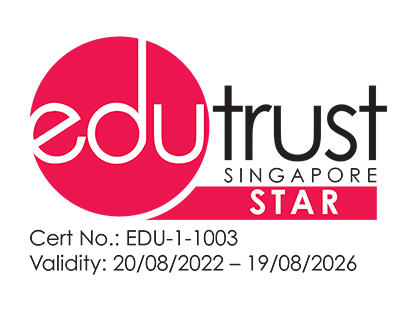Which Industries Need Digital Marketing?

Would you believe us if we told you that global internet users climbed to a whopping 4.95 billion at the start of 2022, with the figure projected to only grow larger?1
As society becomes increasingly digital-first, consuming digital content on a daily basis, digital marketing has had a massive impact on the way we discover new goods and services, and ultimately make our purchasing decisions.
Companies are racing to go digital to market their businesses as the majority of the world is online, with consumers spending hours upon hours on their smartphones, tablets, and laptops. While traditional print and media marketing techniques are still used in modern-day marketing, the proliferation of social media platforms such as Facebook, Instagram, Twitter, and YouTube has opened up a whole new world of possibilities! To stand out in this competitive landscape, almost every business, regardless of industry, must understand how to best navigate the digital world to maximise brand awareness and impact, and ultimately, win consumer trust.
So, to answer the question “Which industry needs digital marketing?”: pretty much every industry that wants to stay competitive, and see continued and significant growth! Let’s take a look at the ways in which digital marketing techniques have impacted how marketing is done in these major industries and improved organisations’ performance:

1. Entertainment
In this day and age, social media is an important medium to create buzz and promote entertainment products – from cinematic releases and TV shows to the latest albums and events.
Promotional efforts are no longer limited to print media, radio, billboards, and scheduled programming on TV, and the types of promotional content have also expanded in line with digital audiences’ appetite and social media trends. From just official posters, trailers, and interviews aired on scheduled time slots in decades past, we now have behind-the-scenes snippets viewable on YouTube whenever you want, interactive live Q&A sessions with celebrities on Instagram, guerilla marketing via TikTok, and trend hijacking methods capitalising on the latest online craze, just to name a few.
Innovation is the name of the game, and a successful digital marketer today knows how to capture not just the attention, but the imagination, of audiences that are always looking for the next big thing.

2. Healthcare
Many of us turn to "Dr. Google" to self-diagnose our health problems and seek advice as soon as we feel ill – which is not always a bad thing, so long as professional diagnoses and treatment follow suit. When COVID-19 struck, crippling healthcare facilities across the globe, we saw how critical it was for people to have easy and immediate access to trusted healthcare advice and authoritative guidelines.
Healthcare providers and related businesses, as well as governments, turned to digital marketing methods to provide resources, such as articles and tips, to people looking for answers to their medical questions and concerns. They ramped up content production on their social media pages and increased content types on their websites to better serve the public during widespread lockdowns, including the use of dynamic illustrations and videos, among others.
Digital marketing expertise is not all about a company’s bottom line – it can be, and is often, used for the greater public good. A deep understanding of target audience behaviour and interests is crucial to ensure the intended messaging is received and understood properly, and disseminated effectively. Here’s where a digital marketer’s key skill set can truly shine.

3. Education
Online learning has no doubt exploded in popularity, particularly following the pandemic. Refined delivery methods and ease of access have made online study the preferred choice for many, with a key segment being working professionals looking to upskill for career advancement, without having to give up their full-time job.
But whether on or offline, education institutions cannot deny the huge role that digital marketing plays in raising awareness on their programmes – especially given how “plugged in” the current and new generations are. With most students being active social media users, education institutions need to meet their audiences where their audiences are, and this means having an active online presence, and understanding the motivations and benefits that resonate the most with them.
With such an important investment as education, it is vital for digital marketers in the education sector to find the right balance in their marketing strategy to not just inform audiences, but sustain their interest, provide motivation, and build a strong community based on trust. Today, we see student testimonials being shared on education institutions’ social media, webinars featuring industry and academic experts, blog articles on topics relevant to students, and much more.

4. Real Estate
The days of “for sale” signs on front lawns and ads in newspapers may not be completely over, but the effectiveness of these traditional marketing techniques is on the decline. Realtors can now access a much wider audience online, and provide attractive and much-needed information on their properties on their websites instead of explaining the same thing over and over again in individual phone calls or physical meet-ups – a big plus point in terms of cost and time savings for both the business and the customer.
Ads with compelling imagery and messaging can be deployed on various digital platforms, with their efficacy further boosted by targeted marketing using data on consumer searches and preferences. These days, a single search on your web browser or via your social media account means you are likely to see ads on relevant products and services served to you, saving you the time and effort to find exactly what you need or the myriad of options available to choose from so that you get what suits you best.
Buying a home is serious business – it is one of the biggest financial decisions one can make in life, and is also a significant emotional decision. As a buyer, you should have all the pertinent information you need upfront – usually online – before committing time and effort for an in-person assessment prior to purchase. As a digital marketer, you need to have a firm understanding of the different demographics and their specific needs.

5. Food
Everyone enjoys food, and the industry knows it. Fast-food outlets, five-star dine-in restaurants, food trucks, ghost kitchens, home cooks – the variety of F&B options available to consumers is staggering. It goes without saying that competition is fierce in the F&B sector, and if you can’t stand the heat, maybe don’t get out of the kitchen… but certainly, get into the digital space.
Similar to home-buying, people tend to have an emotional connection to food. Savvy, people-first digital marketers and content creators know this, and have produced digital content that speaks to this emotional bond and honours the place food and cooking have in the hearts of many. Personal stories and cultural insights are interwoven in the food-related posts you see on your social media feed, taking food marketing to the next level – beyond just mouth-watering photos and heavy branding – and reaching audiences worldwide, thanks to social media algorithms based on your search and viewing habits.
Of course, it doesn’t need to be serious all the time. A variety of content angles – from “shock and awe” to humorous to simply relatable – can serve to make you stand out in the F&B space when marketing on digital channels. The online space is a great cost-efficient way to raise awareness on your offerings, especially if you are just starting out in the food business or finding it hard to compete with F&B giants’ deep pockets. You don’t need thousands of dollars for a billboard ad on the highway – you just need the right content that will make social media users’ tummies rumble as they scroll on their phones in bed.
Make a Real Impact in the Marketing World
Without a doubt, the way businesses are conducted today has evolved alongside digitalisation and technological progress. Ongoing advancements will continue to shape digital marketing strategies and campaign deployments, making it imperative for digital marketers to upskill to stay ahead.
Are you a digitally savvy individual who is brimming with exciting ideas and wants to implement effective strategies that leverage digital methods and best practices? If the answer is “yes”, then Singapore Institute of Management's Graduate Certificate in Digital Marketing (E-Learning) is what you need to boost your career
Schedule a call with our friendly Student Advisors today to take your digital marketing career to greater heights!
References
1 https://datareportal.com/reports/digital-2022-global-overview-report




